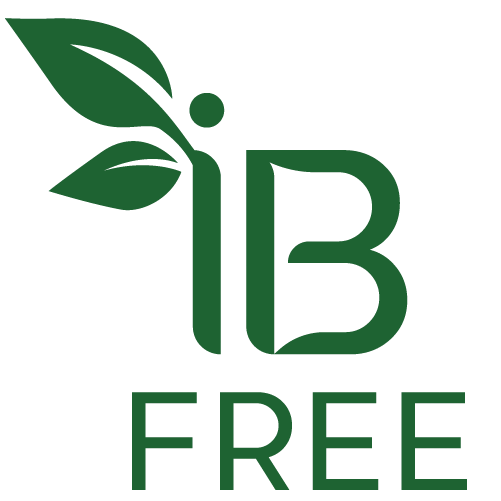A Diet for IBS Relief: Simple Whole Foods for a Happier Gut
For those living with Irritable Bowel Syndrome (IBS), food isn’t just nutrition—it’s a daily negotiation. A single meal can make or break your comfort level, so figuring out what works matters. While individual triggers vary, many people with IBS find relief in diets that prioritize whole, minimally processed foods.
This dietary approach focuses on gentle staples: unprocessed fish and meat, rice, potatoes, cornmeal-based products, and simple vegetables. Combined with gut-friendly fats like olive oil and ghee, it’s a straightforward, satisfying way to reduce flare-ups while still enjoying real meals.
The Core of the IBS-Friendly Diet
Rice
A low-residue, easily digestible carbohydrate. Both white and jasmine rice are low in FODMAPs and unlikely to trigger symptoms (Monash University FODMAP Guide).
Eggs
Nutrient-dense and protein-rich, eggs are typically well tolerated by most people with IBS, especially when cooked simply (Healthline).
Unprocessed Fish and Meat
Lean proteins like grilled chicken, turkey, cod, or salmon provide essential nutrients without introducing hidden additives or FODMAPs.
Potatoes
A reliable starch that’s easy on the gut. Boiled or baked potatoes (without skins) are usually well tolerated by people with both IBS-C and IBS-D.
Cornmeal Products
A suitable alternative to gluten-based products. Polenta, corn tortillas, and simple cornbread (without milk or high-FODMAP additives) are good options (Mayo Clinic).
Vegetables
Focus on non-cruciferous vegetables like peeled cucumbers, cooked carrots, lettuce, and tomatoes. Cruciferous veggies (like broccoli and cauliflower) can ferment in the gut and worsen symptoms.
Healthy Fats: Olive Oil & Ghee
Ghee (clarified butter) and extra virgin olive oil provide anti-inflammatory fats without the gut-irritating impact of seed oils. According to PubMed, extra virgin olive oil can also support gut lining health.
Avoid Garlic and Onions
These are high in fructans, a type of FODMAP known to trigger IBS symptoms (Monash University FODMAP Guide).
Sample IBS-Friendly Meals
1. Grilled Fish with Rice and Steamed Carrots
Fresh white fish grilled in olive oil, served with plain rice and steamed carrots
Balanced in protein, low-FODMAP starch, and gentle fiber
2. Scrambled Eggs with Mashed Potatoes and Cucumber Salad
Eggs scrambled in ghee, potatoes mashed with ghee, and sliced cucumbers with salt and olive oil
Easy to digest, nutrient-rich, and satisfying without overloading the gut
3. Chicken Stir-Fry with Cornmeal Flatbread and Lettuce
Sliced chicken breast sautéed in olive oil, paired with homemade cornmeal flatbread and crisp lettuce
Offers lean protein, carbs, and crunch in a low-FODMAP format
4. Baked Potato with Seared Fish and Tomato-Cucumber Salad
Baked white potato, pan-seared cod or tilapia, and a simple chopped salad dressed with olive oil
A cooling, easy meal for days when digestion feels off
5. Egg Salad with Olives and Steamed Carrots
Hard-boiled eggs mixed with olive oil or mayonnaise, olives, and carrots steamed until soft
Rich in healthy fats and soft texture for minimal gut resistance
Why This Diet Can Work for IBS
Gentle on the Gut
Foods are chosen for their low fermentation potential, which means less bloating, cramping, and urgency.
Free from Major Triggers
Avoids top culprits like garlic, onions, legumes, and overly fibrous greens.
Anti-Inflammatory and Balanced
High-quality fats and proteins help soothe the gut and stabilize energy levels without causing distress.
Aligned with Evidence-Based Guidelines
This food list overlaps heavily with recommendations from leading experts on low-FODMAP diets.
Final Thoughts
Living with IBS often means rewriting your relationship with food—but that doesn’t mean bland or boring. A simple, whole-foods-based approach can offer digestive ease without sacrificing taste or nourishment. By building meals around what your gut can handle—rice, potatoes, eggs, fish, cooked vegetables, and healthy fats—you create a way of eating that supports calm, comfort, and daily function.
Check out a related article by IB-Free: Understanding FODMAPs: The Digestive Puzzle Behind IBS.
As always, consult a healthcare provider or registered dietitian before making any significant dietary changes, especially if your symptoms are severe or inconsistent.
